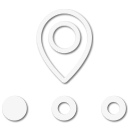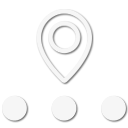
Pathfinder II
Overland Safety Kit: Introduction
This post is the introduction to a series of articles targeted at helping those individuals who are just getting started in the overlanding lifestyle, but will also be beneficial to the veterans to review for their own kit confirmation or refinement.
I've chosen to start with Overland Safety since it really should be the first priority when prepping and executing an expedition. I should quickly note for the newcomers; that while my first emphasis is on safety, this isn't intended to paint overlanding as an overtly dangerous or extreme sport. Just as driving to work has its own specific risks, there are also risks involved in overlanding that should be considered. If you are properly prepared, you will have the confidence to react when the unexpected occurs. Not to mention the peace of mind you gain from considering the risks and putting steps in place to mitigate them. Whether you're a family overlander or a lone wolf, don't skip out on putting together a kit that meets your specific needs. This is the most important step before you step out the door.
The (draft) topic list for the Overland Safety Kit is as follows:
Part I: First-Aid Kit
Part II: Fire Extinguisher
Part III: Backup Navigation
Part IV: Emergency Communications
Part V: Emergency Rations
Part VI: Emergency Tools, Clothing, and Shelter
I will try to keep each article short and sweet as I tend to be a bit long-winded and don't want the reader to become bored or overwhelmed with the info presented.
I'll go ahead and make the disclaimer now that this series isn't meant to be step-by-step guide for trail safety, but rather a starting point and a resource list for you to reference while determining what is right for your kit.
I strongly encourage each OB member to participate with your own input on this and the upcoming articles because I recognize that there are many different methods and means we all use to achieve the same goals. I most certainly don't have it all figured out, and I really do love to learn how others approach a particular subject because it may be more efficient than my current method.
I will update original articles as needed based on the follow-up discussions from the readers so that all additional input is referenced in the main posting.
Stay tuned for PART I: "First-Aid Kit"
This post is the introduction to a series of articles targeted at helping those individuals who are just getting started in the overlanding lifestyle, but will also be beneficial to the veterans to review for their own kit confirmation or refinement.
I've chosen to start with Overland Safety since it really should be the first priority when prepping and executing an expedition. I should quickly note for the newcomers; that while my first emphasis is on safety, this isn't intended to paint overlanding as an overtly dangerous or extreme sport. Just as driving to work has its own specific risks, there are also risks involved in overlanding that should be considered. If you are properly prepared, you will have the confidence to react when the unexpected occurs. Not to mention the peace of mind you gain from considering the risks and putting steps in place to mitigate them. Whether you're a family overlander or a lone wolf, don't skip out on putting together a kit that meets your specific needs. This is the most important step before you step out the door.
The (draft) topic list for the Overland Safety Kit is as follows:
Part I: First-Aid Kit
Part II: Fire Extinguisher
Part III: Backup Navigation
Part IV: Emergency Communications
Part V: Emergency Rations
Part VI: Emergency Tools, Clothing, and Shelter
I will try to keep each article short and sweet as I tend to be a bit long-winded and don't want the reader to become bored or overwhelmed with the info presented.
I'll go ahead and make the disclaimer now that this series isn't meant to be step-by-step guide for trail safety, but rather a starting point and a resource list for you to reference while determining what is right for your kit.
I strongly encourage each OB member to participate with your own input on this and the upcoming articles because I recognize that there are many different methods and means we all use to achieve the same goals. I most certainly don't have it all figured out, and I really do love to learn how others approach a particular subject because it may be more efficient than my current method.
I will update original articles as needed based on the follow-up discussions from the readers so that all additional input is referenced in the main posting.
Stay tuned for PART I: "First-Aid Kit"
Last edited:













